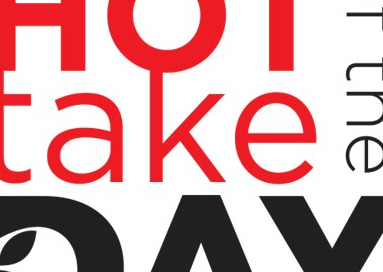The federal government just resumed student loan collections. For real this time. Not the “we’ll give you more time” kind. The “we’ll garnish your wages, seize your tax refund, and tank your credit score” kind.
And the reaction?
Panic.
One article warned that people behind on payments could see their credit scores drop 175 points. And asked—in horror—how these people will ever qualify for a mortgage.
Excuse me?
If you can’t pay your student loans, you should absolutely not be buying a house. That’s not me being cruel. That’s me being honest.
Maybe the issue isn’t the reporting of bad debt. Maybe the issue is we’ve trained people to borrow like the federal government: Endless spending. No budget. No real plan to pay it back. And then total shock when the lender wants their money. And now, we’re watching the consequences play out in real time—for individuals and for the system.
So here’s a radical idea: What if kids didn’t go straight to college?
What if we encouraged 18-year-olds to take two or three years to bet on themselves?
My son is caddying this summer.
His friend is working on a construction crew learning how to renovate houses.
Others are waiting tables, bussing, bartending, and eventually should be working at the factories that are coming back.
You learn a lot from doing real work. You learn how to show up on time. Deal with people. Handle money. Pay taxes. Feel pride. Feel exhaustion. You also learn what things actually cost—and what you might want to do with your life.
Then—maybe—you go to college.
But when you do, you understand the cost. You make a calculation. You know that giving up $50,000/year in earnings and spending $100,000 on tuition to become a $40,000/year social worker is a decision—not a default. It should be hard to make that call. It should come with thought. Not just momentum.
And if our K-12 scores are plummeting, maybe the problem isn’t the students. Maybe it’s the teachers. Maybe it’s the programs we’re offering. Maybe it’s the fact that the same people warning us about AI aren’t even using it in the classroom.
Is your college teaching with AI? Are your kids learning how to build with it?
Are their professors pushing students to evaluate every decision—career, lifestyle, investment—through the lens of rate of return?
My son is in a college finance class. At the end of the semester, multiple students still didn’t understand Net Present Value. That’s not a kid problem. That’s a system failure. We’re churning out $100,000 graduates who can’t explain the time value of money.
And then we’re surprised they can’t pay off their loans?
Come on.
Financial literacy isn’t elitist. It’s necessity.
So here’s the question every student should be asked before they sign a FAFSA or take out a six-figure loan: Are you betting on yourself? Or just doing what you are told?




That may be a first wake up call but the student loan debt that you can’t or won’t pay back is a strong indicator of your life decision character. Get a job and make payments!! Those not paying back student loans need a hard lesson - how about this - no more loans for anything as you’ve demonstrated the desire to walk on any commitment.
It’s a tough world, even tougher with low integrity.
Growing up in a small town in Northern Michigan many of us just joined the military after high school. I’m guessing 15-20% of the men and 5% of the ladies. Many of us got out and worked in the trades and several went to college with the help of the GI Bill and other incentives offered in the 80’s to entice recruitment. I’m grateful to have taken that route because nobody’s more determined to succeed when it’s their own money on the line. Of course, a lot has changed, but the incentive to succeed was reinforced by the downside of failing. Doesn’t appear many people would go hungry or not even have some of the basics in our current system if they did fail to work hard enough to make it.